Sustainable Tourism in Italy’s Florence
When it comes to sustainable tourism in Italy's Florence, the city stands out as a shining example of harmonizing the influx of visitors with the preservation of its rich cultural heritage and natural beauty. Florence has been proactive in implementing various initiatives to promote responsible travel practices, protect the environment, and support local communities while ensuring an unforgettable experience for tourists.
One of the key aspects of sustainable tourism in Florence is the focus on historical preservation. The city has successfully managed to strike a balance between welcoming tourists to iconic sites like the Uffizi Gallery and the Duomo while also undertaking restoration projects and implementing visitor management strategies to safeguard these historical treasures for future generations.
Moreover, Florence has been at the forefront of environmental conservation efforts within the tourism sector. From reducing waste and improving energy efficiency to advocating for eco-friendly transportation options, the city is committed to minimizing its ecological footprint and preserving its natural surroundings for both residents and visitors to enjoy.
Local community engagement plays a vital role in sustainable tourism practices in Florence. By involving residents in tourism activities, supporting small businesses, and fostering cultural exchange between visitors and the local community, the city creates a more authentic and mutually beneficial travel experience for all involved.
When it comes to culinary sustainability, Florence takes pride in its farm-to-table dining experiences and traditional food practices. Efforts to promote sustainable agriculture and local food production not only enhance the gastronomic offerings for tourists but also contribute to the overall well-being of the region.
Artisanal traditions are also a cornerstone of sustainable tourism in Florence. The city is dedicated to preserving and promoting traditional craftsmanship, such as leatherworking, ceramics, and textile production, through various sustainable tourism initiatives that celebrate the rich cultural heritage of the region.
Visitors to Florence can choose from a range of eco-friendly accommodations that prioritize sustainability and responsible tourism practices. From environmentally conscious hotels to cozy guesthouses, the city offers a variety of options for travelers seeking a more eco-conscious stay.
Exploring rural tourism opportunities in the picturesque countryside surrounding Florence is another way to experience sustainable travel. Agritourism, vineyard visits, and nature-based activities allow visitors to connect with the region's natural beauty while supporting local communities and preserving the rural way of life.
For those interested in learning more about sustainable tourism practices, Florence provides a host of educational programs, workshops, and tours that raise awareness and encourage responsible travel behavior among tourists. These initiatives not only benefit the environment and local communities but also enrich the travel experience by fostering a deeper understanding of the destination.
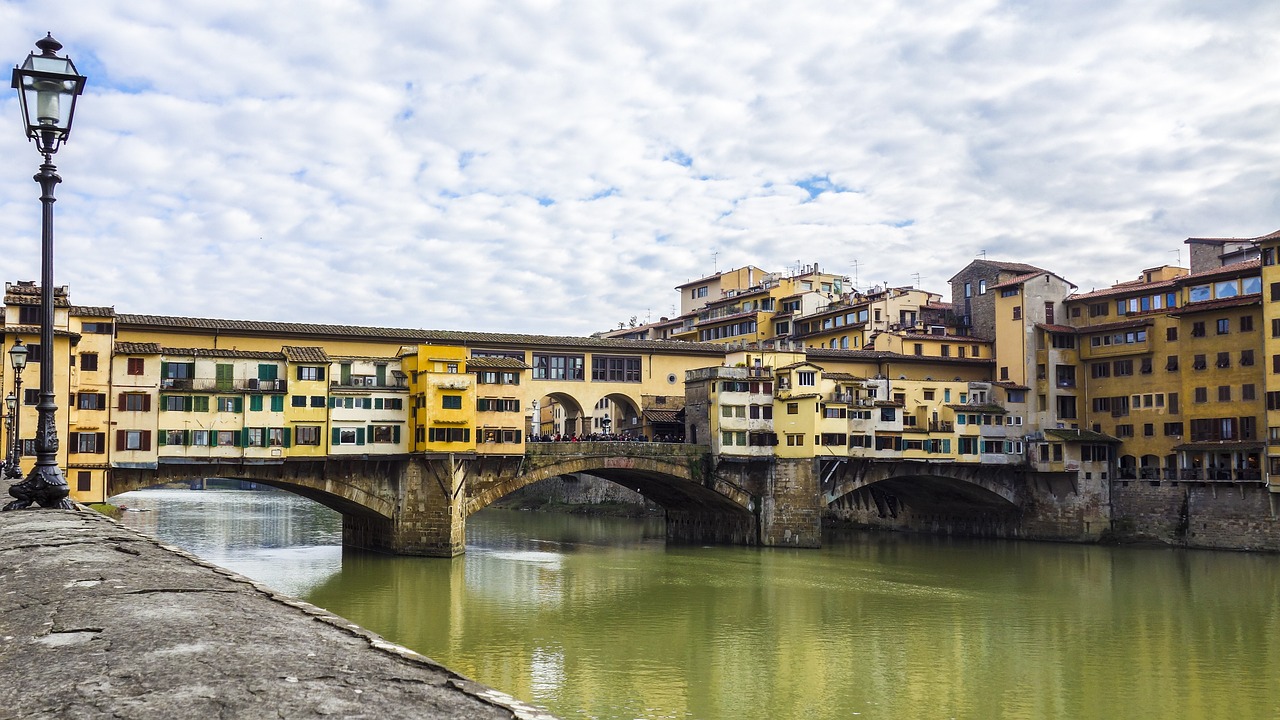
Historical Preservation
Exploring the efforts and initiatives in Florence, Italy, to promote sustainable tourism practices, protect the environment, preserve cultural heritage, and support local communities while offering visitors a unique and responsible travel experience.
Historical preservation in Florence is a delicate dance between welcoming tourists to iconic sites like the Uffizi Gallery and the Duomo while ensuring the preservation of these historical treasures. Restoration projects are carefully undertaken to maintain the authenticity of these landmarks, allowing visitors to immerse themselves in centuries of history. Visitor management strategies are implemented to prevent overcrowding and minimize wear and tear on these cultural gems, ensuring that future generations can also appreciate their beauty.

Environmental Conservation
In Florence, environmental conservation plays a crucial role in ensuring the sustainability of tourism practices. Efforts are focused on minimizing the environmental impact of tourism activities to protect the city's natural beauty and resources for future generations. One of the key initiatives is waste reduction, where recycling programs and waste management strategies are implemented to minimize the amount of waste generated by tourists and locals alike.
Additionally, energy efficiency measures are being adopted to reduce the carbon footprint of tourism operations in Florence. This includes promoting the use of renewable energy sources and implementing energy-saving technologies in hotels, restaurants, and other tourism-related businesses. By prioritizing energy efficiency, Florence aims to lower its overall environmental impact and contribute to global efforts to combat climate change.
Furthermore, the city is actively promoting eco-friendly transportation options to reduce emissions and alleviate traffic congestion. Visitors are encouraged to explore Florence using sustainable modes of transport such as cycling, walking, or utilizing electric vehicles. By advocating for eco-friendly transportation, Florence is not only preserving its air quality but also enhancing the overall visitor experience by promoting a healthier and more sustainable way of exploring the city.

Local Community Engagement
Local Community Engagement in Florence plays a crucial role in promoting sustainable tourism practices and fostering meaningful interactions between visitors and the local population. Through various initiatives, the city aims to involve residents in tourism activities, support small businesses, and encourage cultural exchange.
One significant program is the "Meet the Locals" initiative, where visitors can engage with local artisans, chefs, and residents to learn about traditional crafts, culinary practices, and daily life in Florence. This not only provides a unique experience for tourists but also supports local businesses and preserves cultural heritage.
In addition, community-led walking tours offer a glimpse into the authentic life of Florentines, showcasing hidden gems, local markets, and lesser-known historical sites. These tours, led by knowledgeable locals, provide a more intimate and immersive travel experience, allowing visitors to connect with the community on a personal level.
Furthermore, partnerships between tour operators and local organizations promote responsible tourism by giving back to the community. For example, some tour companies donate a percentage of their profits to local charities or support environmental conservation projects in Florence, creating a positive impact beyond tourism.
By actively involving the local community in tourism initiatives, Florence not only enriches the travel experience for visitors but also ensures that tourism benefits are shared equitably among residents. This collaborative approach fosters a sense of ownership and pride among locals, making them ambassadors for sustainable tourism practices in the city.
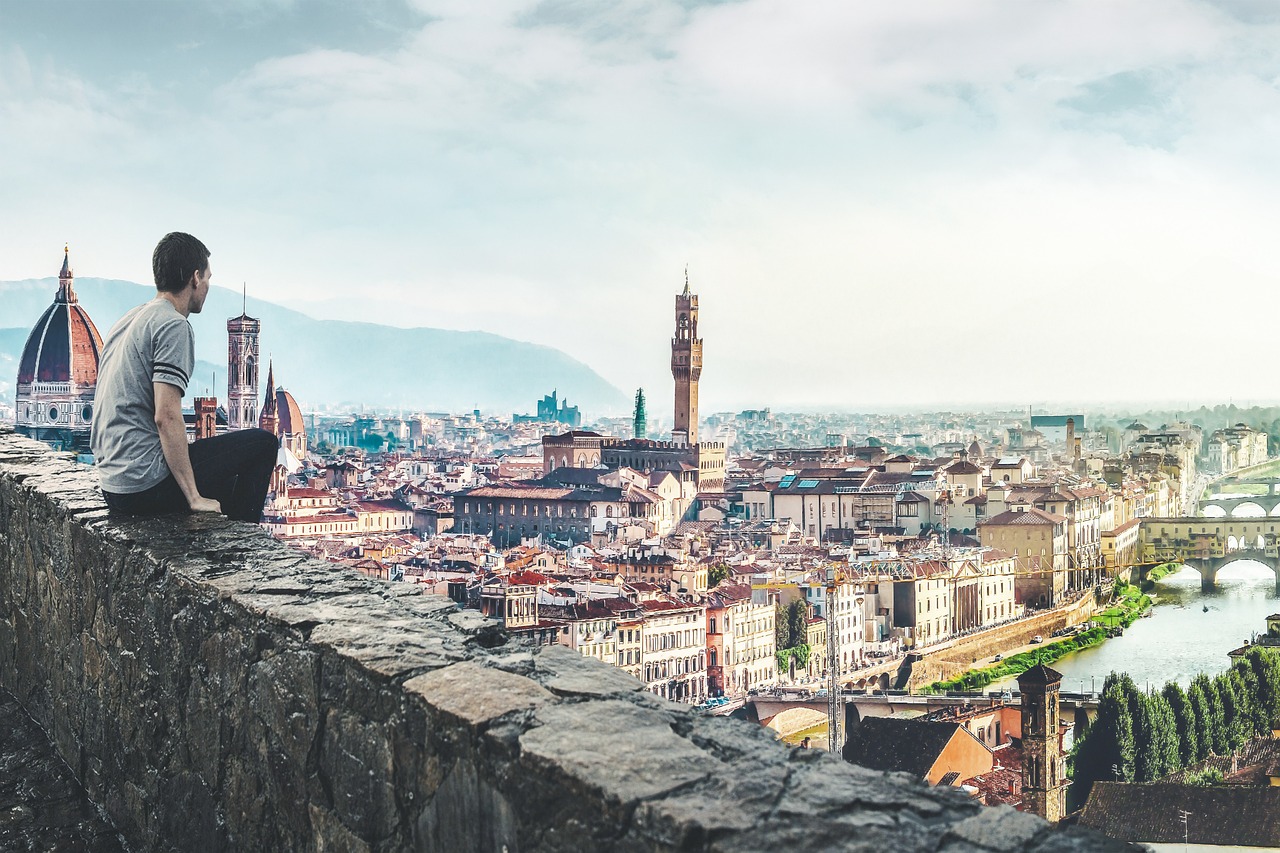
Culinary Sustainability
When it comes to in Florence, Italy, the city takes pride in its farm-to-table dining experiences that not only tantalize the taste buds but also promote responsible food practices. From traditional Tuscan dishes to innovative fusion cuisine, Florence offers a gastronomic journey that celebrates local ingredients and supports sustainable agriculture.
One of the key aspects of culinary sustainability in Florence is the emphasis on local food production and consumption. Many restaurants and eateries source their ingredients from nearby farms and markets, ensuring freshness and reducing the carbon footprint associated with food transportation. This farm-to-table approach not only supports local farmers but also promotes a deeper connection between visitors and the region's culinary heritage.
Furthermore, Florence is known for its traditional food practices that have been passed down through generations. From handmade pasta to artisanal cheeses, the city's culinary scene reflects a commitment to preserving time-honored recipes and cooking techniques. By embracing these culinary traditions, Florence showcases the importance of sustainability in maintaining cultural identity and promoting local gastronomy.
Visitors to Florence can also participate in cooking classes and food tours that highlight the significance of sustainable food practices. These educational experiences not only provide insights into the local cuisine but also raise awareness about the environmental and social impact of food choices. By engaging with the culinary heritage of Florence, travelers can gain a deeper appreciation for sustainable food systems and responsible eating habits.
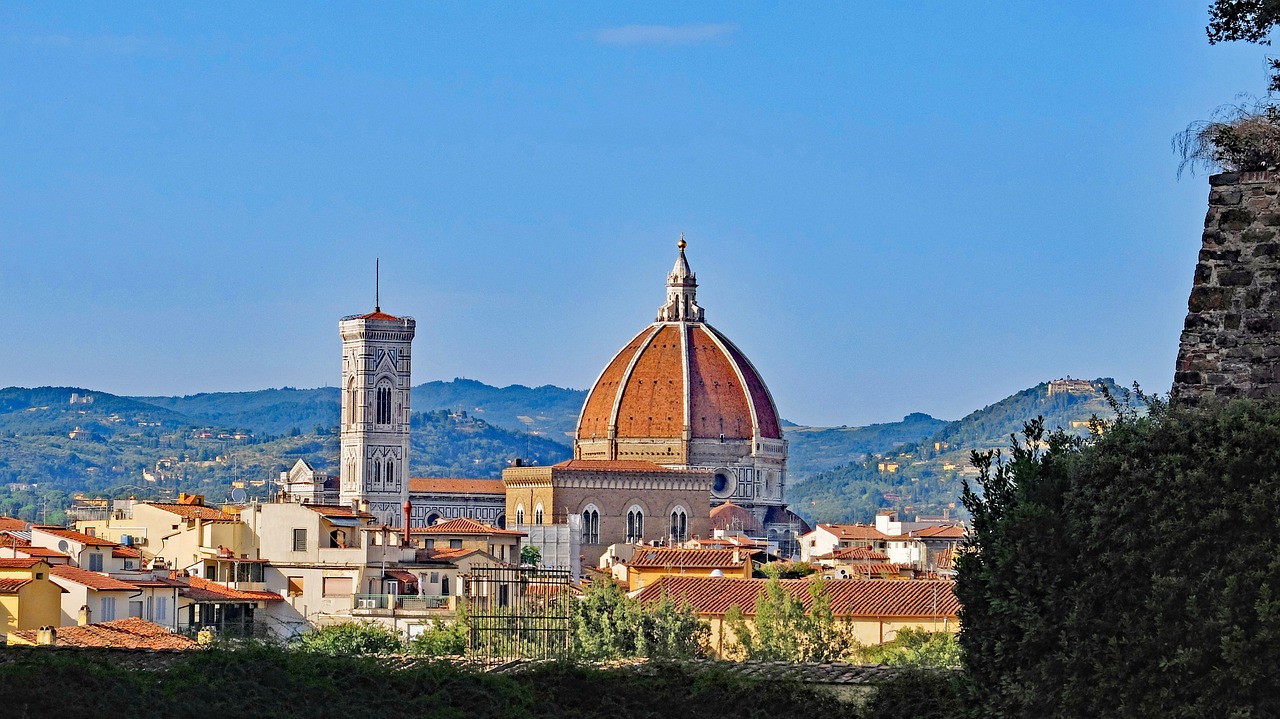
Artisanal Traditions
Florence, Italy, is renowned for its rich artisanal traditions that have been passed down through generations. These traditions encompass a wide range of crafts, including leatherworking, ceramics, and textile production, each contributing to the city's cultural heritage. Artisans in Florence take pride in their meticulous craftsmanship and attention to detail, creating unique and high-quality products that are sought after worldwide.
One of the key aspects of sustainable tourism in Florence is the preservation and promotion of these artisanal traditions. By supporting local artisans and their traditional crafts, visitors not only have the opportunity to purchase authentic and handmade souvenirs but also contribute to the preservation of these age-old practices. Through sustainable tourism initiatives, such as artisan workshops and guided tours, travelers can gain insight into the intricate processes involved in crafting these artisanal products.
Moreover, sustainable tourism in Florence aims to ensure that artisanal traditions are carried forward in an environmentally conscious manner. By promoting sustainable practices within these industries, such as using eco-friendly materials and minimizing waste, Florence is able to preserve its artisanal heritage while reducing its environmental footprint. This harmonious blend of tradition and sustainability adds depth and authenticity to the travel experience in Florence, allowing visitors to engage with the city's cultural legacy in a meaningful way.

Eco-Friendly Accommodation
Exploring the efforts and initiatives in Florence, Italy, to promote sustainable tourism practices, protect the environment, preserve cultural heritage, and support local communities while offering visitors a unique and responsible travel experience.
Balancing tourism with the conservation of historical sites, such as the Uffizi Gallery and the Duomo, through restoration projects and visitor management strategies.
Efforts to minimize the environmental impact of tourism in Florence, including waste reduction, energy efficiency, and promoting eco-friendly transportation options.
Initiatives that involve local residents in tourism activities, support small businesses, and promote cultural exchange between visitors and the community.
Highlighting farm-to-table dining experiences, traditional food practices, and efforts to promote sustainable agriculture and local food production.
Preserving and promoting traditional craftsmanship in Florence, such as leatherworking, ceramics, and textile production, through sustainable tourism initiatives.
Showcasing eco-friendly hotels, guesthouses, and accommodations in Florence that prioritize sustainability and responsible tourism practices.
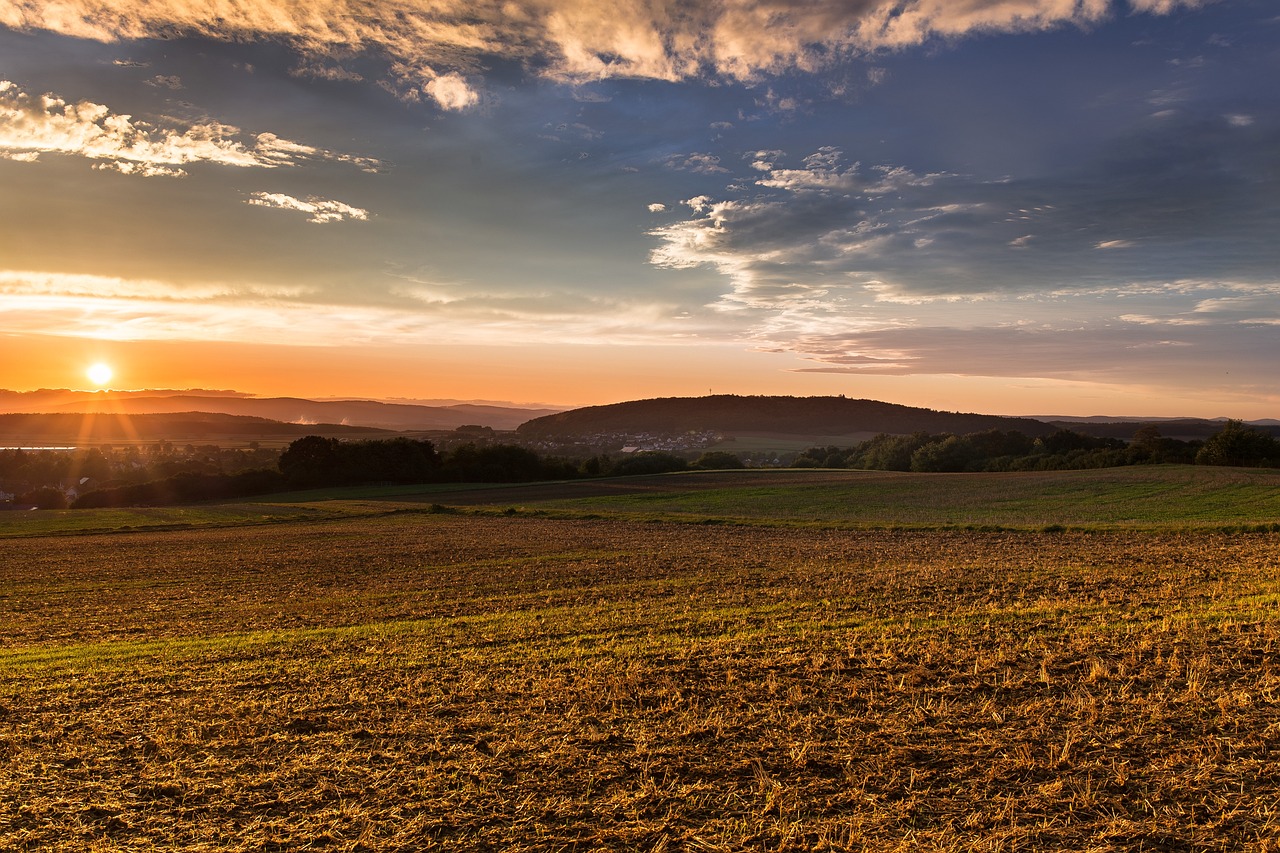
Rural Tourism
In the picturesque countryside surrounding Florence, rural tourism offers visitors a unique opportunity to immerse themselves in the beauty of Tuscany's landscapes and experience the authentic local way of life. Away from the bustling city center, travelers can explore charming villages, rolling vineyards, and olive groves that showcase the traditional agricultural practices of the region.
One of the highlights of rural tourism in Florence is agritourism, where visitors can stay on working farms, participate in agricultural activities, and savor farm-fresh meals made from locally sourced ingredients. This hands-on experience allows guests to connect with nature, learn about sustainable farming practices, and support local farmers and producers.
Vineyard visits are also popular among tourists seeking a taste of Tuscany's renowned wines. By touring vineyards, wine enthusiasts can witness the winemaking process firsthand, from grape harvesting to bottling, and enjoy wine tastings that highlight the unique flavors and characteristics of the region's varietals.
Nature-based activities, such as hiking, cycling, and horseback riding, provide opportunities for outdoor enthusiasts to explore the scenic countryside surrounding Florence. From the rugged Apennine Mountains to the tranquil Arno River, the region offers diverse landscapes that cater to a range of interests and preferences.
By promoting rural tourism, Florence not only encourages sustainable travel practices but also supports the economic development of rural communities, preserving their cultural heritage and fostering a deeper connection between visitors and the natural environment. Whether indulging in local cuisine, engaging in agricultural traditions, or simply enjoying the tranquility of the Tuscan countryside, rural tourism in Florence offers a refreshing escape from the urban hustle and bustle.
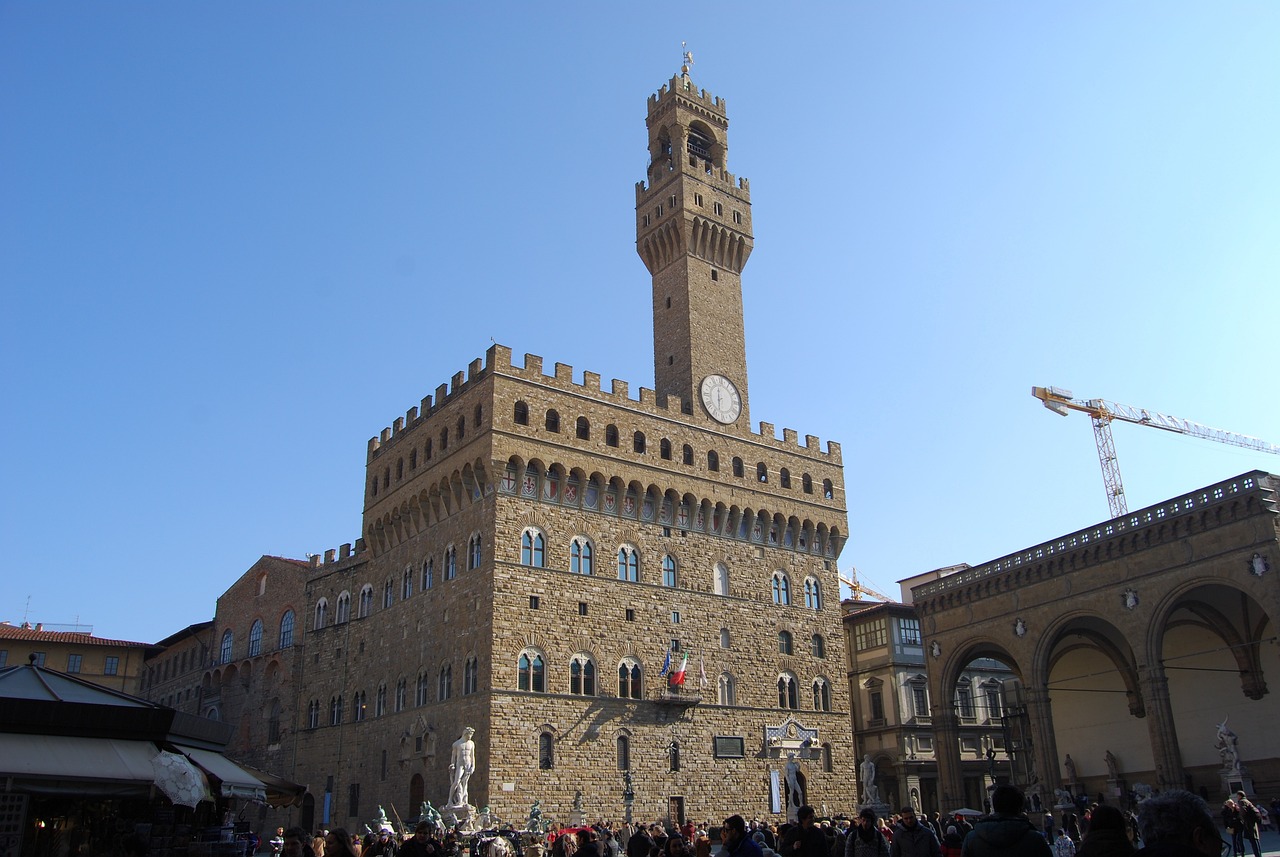
Educational Programs
Educational programs in Florence play a crucial role in promoting sustainable tourism practices and raising awareness among visitors about the importance of responsible travel behavior. These programs offer unique opportunities for tourists to learn about the cultural heritage, environmental conservation efforts, and local community engagement initiatives in the city.
One of the key educational initiatives in Florence is the guided tours of historical sites and museums, where knowledgeable guides provide insights into the significance of preserving these landmarks. Visitors can immerse themselves in the rich history of Florence while understanding the conservation challenges faced by these iconic attractions.
Workshops focusing on sustainable practices, such as waste reduction, energy efficiency, and eco-friendly transportation, are also popular among tourists looking to minimize their environmental impact during their stay in Florence. These hands-on experiences empower visitors to make conscious choices that benefit the environment and support the city's sustainability goals.
Furthermore, educational programs often include visits to local farms and artisan workshops, allowing tourists to witness traditional craftsmanship firsthand and appreciate the importance of supporting local artisans. By engaging with the community and learning about the cultural significance of artisanal traditions, visitors contribute to the preservation of Florence's unique heritage.
Interactive sessions on culinary sustainability offer participants the chance to explore the farm-to-table concept, taste traditional dishes made from locally sourced ingredients, and understand the importance of sustainable agriculture in promoting healthy food systems. These gastronomic experiences not only delight the taste buds but also educate visitors on the interconnectedness of food, culture, and sustainability.
Through educational programs, tourists are encouraged to adopt responsible travel practices that respect the environment, support local communities, and preserve the cultural identity of Florence. By participating in these enlightening activities, visitors become ambassadors of sustainable tourism, spreading awareness and inspiring others to travel mindfully and contribute to the well-being of destinations they visit.
Frequently Asked Questions
- What is sustainable tourism?
Sustainable tourism refers to practices that aim to minimize the negative impacts of tourism on the environment, culture, and local communities, while maximizing the benefits for all stakeholders involved. It involves responsible travel behavior, conservation of natural and cultural resources, and support for local economies.
- How does Florence promote sustainable tourism?
Florence promotes sustainable tourism through various initiatives, such as historical preservation projects, environmental conservation efforts, local community engagement programs, culinary sustainability practices, and eco-friendly accommodation options. These efforts help to preserve the city's heritage, protect the environment, and support the well-being of local residents.
- What are some examples of eco-friendly activities in rural tourism around Florence?
Some examples of eco-friendly activities in rural tourism around Florence include agritourism experiences on local farms, visits to vineyards practicing sustainable agriculture, and nature-based activities like hiking and birdwatching. These activities allow visitors to connect with the natural beauty of the surrounding countryside while supporting sustainable practices.
- How can visitors contribute to sustainable tourism in Florence?
Visitors can contribute to sustainable tourism in Florence by choosing eco-friendly accommodations, supporting local businesses, respecting cultural heritage sites, minimizing waste generation, and engaging in responsible travel practices. By being conscious of their impact and making sustainable choices, visitors can help preserve Florence for future generations.



















